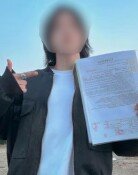Excessive private education is emotional abuse
Excessive private education is emotional abuse
Posted November. 16, 2017 07:07,
Updated November. 16, 2017 08:06
"Our family motto was 'DAYAT,' which stands for Do As You Are Told.” This is the story of author Lee Yu-jin, who wrote the book “Apology of a Mother,” an essay that narrates how she coped with her daughter and son dropping out of high school. Lee is an elementary school principal. “Do you know how much money it takes to send you to that private institute? You’re not doing anything at home. You’re not expected to do chores. Then what’s your excuse for being late for class?” Lee was the type of mother who nagged all the time.
Her children, who had always excelled at school, quit school when they were in the senior and junior year of high school. They spent the following 18 months locked up in their rooms, doing nothing but playing computer games. During that time, Lee had three car accidents and caused another three. No mother is expected to stay sane when her children, her source of pride, had changed overnight. The author, who had resented the world, finally realized that she had been the culprit, the mother who never complimented her children and eventually drove them to the brink. In the end, her son majored in creative writing from a “not prestigious” university and currently studies philosophy. Her daughter attended bakery school, but later studied psychology in the United States and is working as a counselor for adolescents. All of this was the outcome of Lee letting go of her obsession.
According to a research jointly performed by The Dong-A Ilbo and the Korea Academy of Child and Adolescent Psychiatry on pediatricians, 79 percent of respondents said that they have treated students who showed abnormalities caused by excessive private education. Children who are too young to express their feelings show abnormal behavior, such as tic disorder, depression and suicidal impulse. Child abuse is not limited to physical assault or starvation; a child can be emotionally abused when he or she is forced to undergo excessive private education. The reaction showed by our readers was enthusiastic yet revealing heavy hearts.
Parents in Korea are enthusiastic about private education because they want to make sure that their children get a chance to succeed in a social hierarchy that merits academic achievement. However, the side effects of excessive private education cannot be overlooked. Excessive money spent on private education burdens middle-class families and ebbs away on retirement savings. Seoul’s Daechi-dong neighborhood has a reputation for having the largest number of private institutes in Korea. It also has the most number of children’s psychiatric clinics. It seems like moms are not the only ones who owe children an apology.







